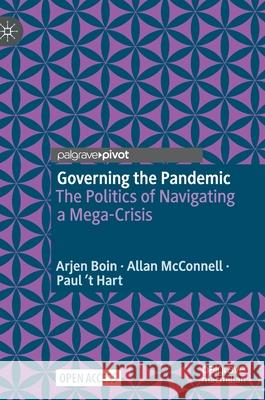Governing the Pandemic: The Politics of Navigating a Mega-Crisis » książka
topmenu
Governing the Pandemic: The Politics of Navigating a Mega-Crisis
ISBN-13: 9783030726799 / Angielski / Twarda / 2021 / 130 str.
Kategorie BISAC:
Wydawca:
Palgrave Pivot
Język:
Angielski
ISBN-13:
9783030726799
Rok wydania:
2021
Wydanie:
2021
Ilość stron:
130
Waga:
0.32 kg
Wymiary:
21.01 x 14.81 x 0.97
Oprawa:
Twarda
Wolumenów:
01
Dodatkowe informacje:
Wydanie ilustrowane











